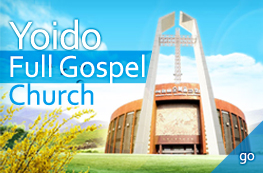
◇ Both the 500th anniversary of the Reformation and the 130th anniversary of publication of the “Corean New Testament” seem to hold special meaning.
Director Lee Deok-ju = Looking at it historically, whenever the Bible was translated, the world began to change. With the translation of the Hebrew Bible into Greek, the Greco-Roman era was opened. When the Greek Bible was translated into Latin, the Middle Ages started. Along with the religious Reformation in 1517, as the Latin Bible was translated into German, the curtain was raised on the modern age. In the same way, when the Bible was translated into our language through missionary John Ross 130 years ago, the Korean scene was opening toward great change. The Korean churches need to remember the spirit of reform and change, and recognize this as the moment to put it into practice. (*In top photo, Director Lee, far left, explains the origin of Lyangja (里樣子) Church in a remote Korean community of Lyangja village in Jian, China.)
Former President Yoon Kyung-ro = It’s a good opportunity to rediscover the “Word of the Spirit history” that was deeply ingrained in the early Korean church. Today’s Korean churches have fallen into clericalism and secularism, even while shouting about “the Bible as center”; it’s time for them to rediscover the power of the Word from Luther and Ross.

◇ Through the “John Ross route,” did you glimpse anything remarkable in the ministry of missionary John Ross?
Prof. Park Hyeong-shin = What caught my eye was that missionary Ross, of course in his main field of ministry, China, but also in his mission activities directed toward Koreans, did his best not to violate the laws of the land. This can be contrasted with cases where missionaries have put their fervent faith ahead of all else, ignoring the culture or laws of the country or showing disrespect for their neighbors. Considering that Ross had a passionate faith but also practiced respect for his neighbors, his ministry bears a different meaning.
◇ If you were to name the biggest contribution made by John Ross in his mission to Koreans?
Prof. Emer. Lee Man-yeol = That would be the point that, through the translation of the Korean Bible, energy was poured into the mission for Koreans and the Korean peninsula. Later on, U.S. missionaries became involved in making other translations to replace the “Ross translation Bible,” but if there had been no Ross translation, the birth of the Korean-language Bible probably would have taken place much later.
Prof. Park = Missionary Ross, even while staying in the Manchurian region, indirectly supported the formation of the Christian faith community in the land of Korea. His enthusiasm for Korean mission was not in line with the direction of his sending organization, Scotland’s United Presbyterian Church. But his mission resolve toward Korea was firm.
◇ Along the John Ross route of Shenyang, Dandong, Liaoyang, Yingkou, etc., what place gave you the deepest impression?
Director Lee = Would it not be Lyangja Church in Jian? That is a place that holds traces of our ancestors in the faith who met the Gospel deep in the mountains, cut off from the world after their departure from the land of Joseon. That place led them to realize that “the end is the beginning,” that one meets new life at the end of the world.
Former President Yoon = I would name Corea Gate in Dandong. I had tried to picture in my imagination the place where missionary Ross met Korean people for the first time, and when I actually saw that historical spot with my own eyes, I felt choked with emotion. I also realized the need for more research on the location and significance of Corea Gate.
◇ What message does missionary Ross’s life have for persons of faith living in these times?
Director Lee = The value of meeting and communicating. Missionary Ross first met traders from Korea, and next learned Korean, going on to translate the Bible into Korean, and doing evangelical work; and in this chain of activities, the two indispensable elements were the meeting and the communicating. Just as God has sent us Jesus to communicate with us.
Article and photo by reporter Jaechan Park (jeep@kmib.co.kr), from Shenyang & Liaoyang, with Marion Kim (marionkkim@icloud.com)
Original Article in Korean:
[기독사학자 중국 현지 좌담] “루터와 로스로부터 말씀 능력 되찾을 때”: 최초 한글 신약전서 ‘예수셩교젼셔’ 출판 130주년 존 로스 루트를 가다
Related Articles in Korean:
1. [존 로스 루트를 가다] 루터 獨語성경처럼… 한글성경 ‘복음의 능력’ 펼치다: ① 중국 선양 동관교회
2. [존 로스 루트를 가다] 中 은둔의 마을에 한인 첫 해외교회 있었다: ② 중국 지안 이양자교회터
3. [존 로스 루트를 가다] 존 로스가 조선인 처음 만난 역사적 현장: ③ 중국 단둥 고려문
4. [존 로스 루트를 가다] 평양 대부흥 물결 이은 만주 부흥운동의 요람: ④ 중국 랴오양교회
5. [존 로스 루트를 가다] 한국인 최초로 4명이 세례 받은 복음의 관문: ⑤·끝 중국 잉커우



